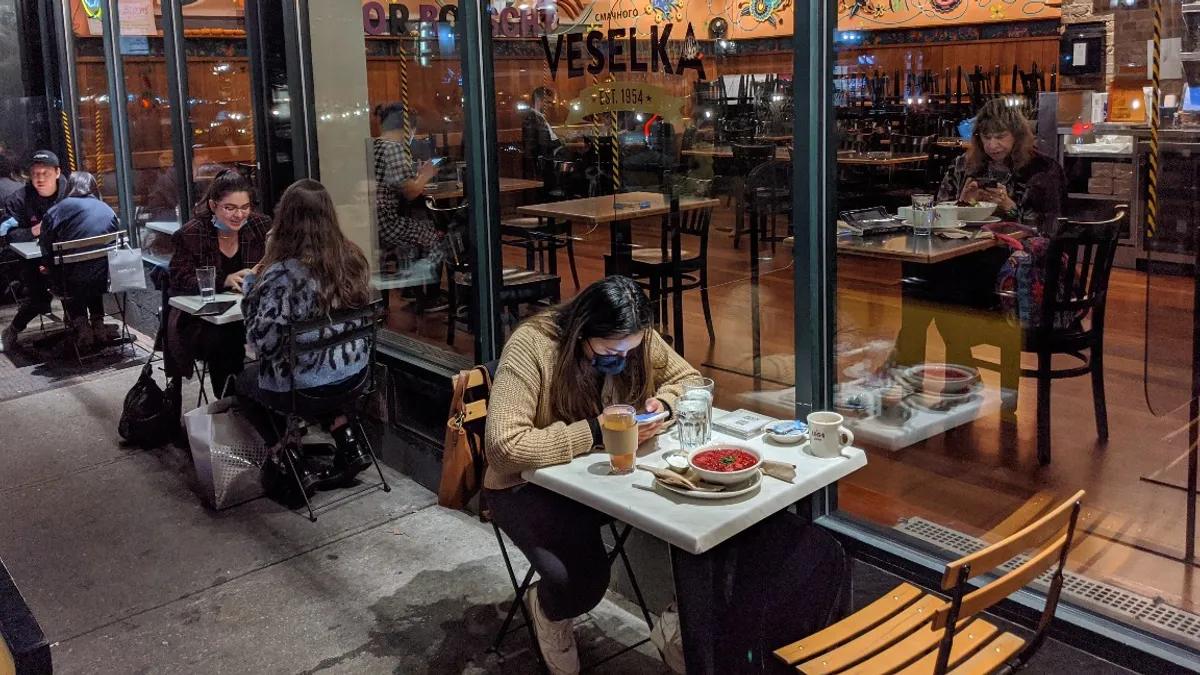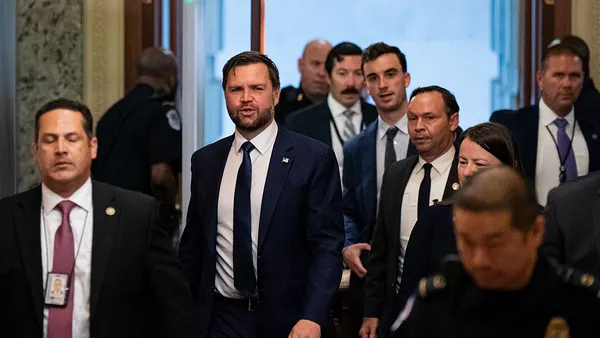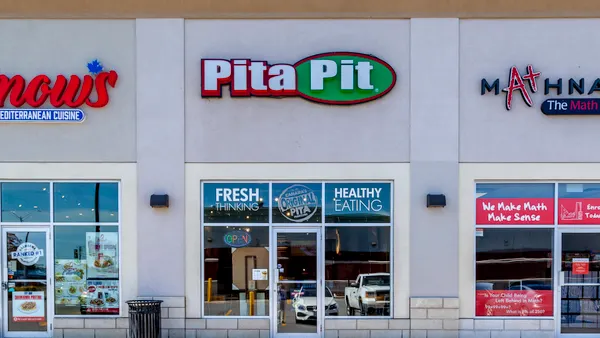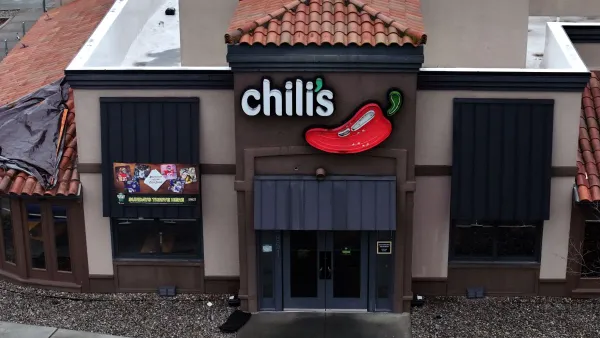Dive Brief:
- Massachusetts announced new restrictions Tuesday to manage rising coronavirus cases in the state, including requiring restaurant customers to wear masks except when they’re eating or drinking. The state is also limiting dining times to 90 minutes and restaurant parties to six people. Food court seating and live music are also suspended.
- Gov. Charlie Baker's office said in a press release the new measures are "designed to prevent infection and viral spread, especially in indoor settings. They will create stronger mask compliance, more social distancing and limits the time spent with people outside of your immediate household." These restrictions will remain in place until COVID-19 cases plateau, Restaurant Business reports.
- Massachusetts' approach is significantly less restrictive than other regions experiencing rising cases, including California, Washington, Oregon, New Mexico, Minnesota, Michigan, Illinois and Kentucky that banned dine-in service. New York City could shut down indoor dining if hospitalizations don't stop rising.
Dive Insight:
While a number of states contend with restaurant shutdowns or capacity reductions, Massachusetts' more gradual restrictions could be more manageable for operators. During the state's announcement, officials acknowledged that restaurants have been hit particularly hard by the pandemic, and Lieutenant Gov. Karyn Polito said the industry has "gone to great lengths to enact safety protocols" and has been creative and innovative in the process.
Still, these types of restrictions could be a challenge to oversee. Mask enforcement in particular has been an obstacle for many restaurants, and wearing a mask throughout the dining experience unless eating could be confusing or frustrating to guests. When California Gov. Gavin Newsom's office tweeted that diners should keep their mask on in between bites, the reaction was vastly negative. Many pointed out that CDC guidance advises people to touch their masks as little as possible, while another person asked what to do if they're eating chips and salsa, for example.
California wasn't the only state to suggest such a restriction, however. This summer, Illinois started requiring customers to keep their facial coverings on while talking to servers, and Maine Gov. Janet Mills said in November that customers would be required to wear masks except when eating or drinking.
These mandates show that there are still patchwork COVID-19 safety requirements throughout the country and that no one solution has proven to be the most effective. Restaurant owners have protested in some areas, refusing to adhere to certain restrictions.
All of these restrictions are designed to manage coronavirus cases as hospitalizations hit record highs. Restaurant dining has come under fire for increasing the risk of COVID-19 more than other activities. In September, the CDC released a report showing that adults who tested positive were approximately twice as likely to have reported dining at a restaurant two weeks before becoming sick. Last week, the CDC issued new guidance recommending avoiding nonessential indoor spaces like restaurants and bars.
The National Restaurant Association has pushed back against research like this, writing a letter to the National Governors Association claiming there is no scientific evidence linking restaurants to the increase in cases and urging them to consider policies and regulations that enable the industry to safely serve their communities. It's possible that this sentiment influenced Massachusetts' more relaxed restrictions, but owners still aren't satisfied. One restaurateur told WCVB 5 ABC that the new language officials are using "is basically closing us," citing the 90-minute and six-person limits. Another said the restrictions will confuse diners and even make them more nervous.













